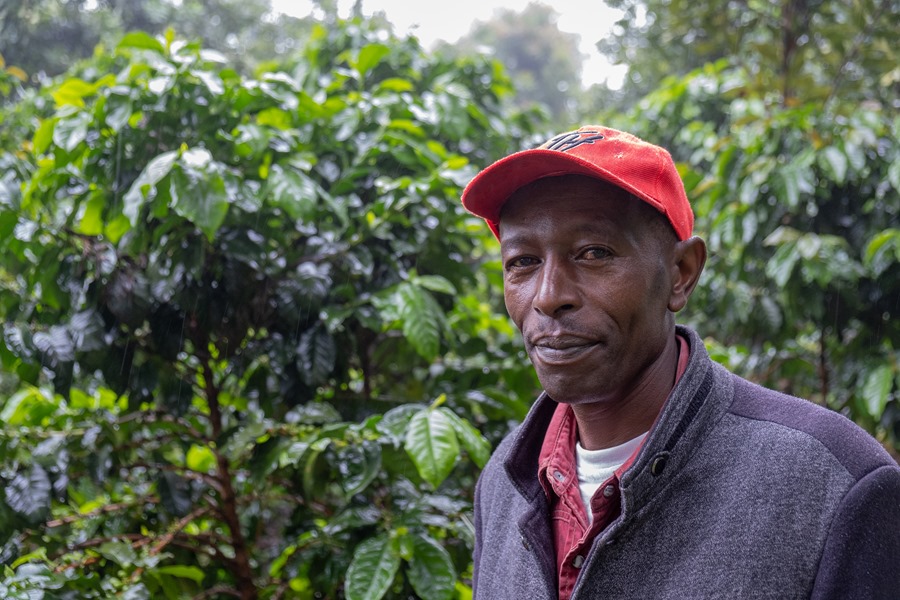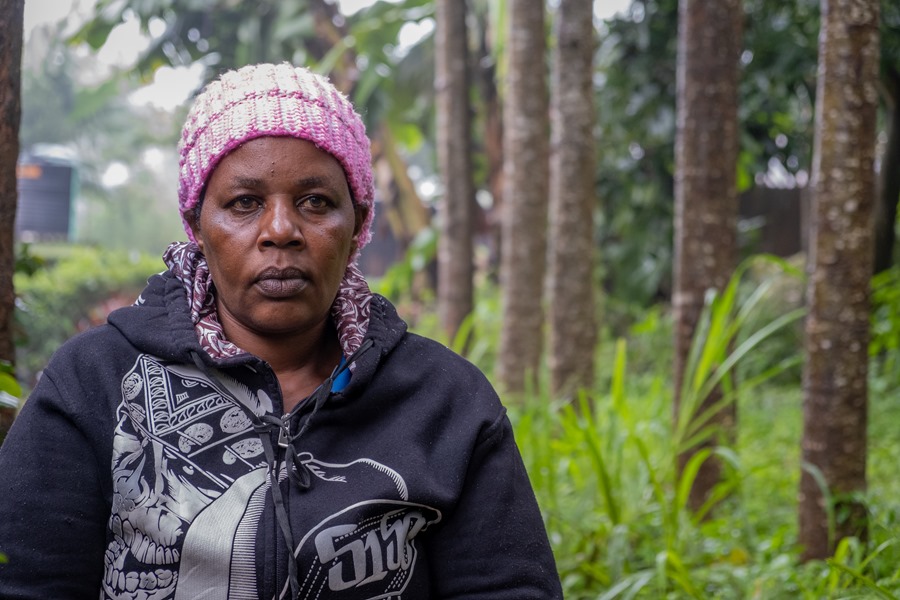Pablo Moraga |
Rutune (Kenya) (EFE) He knows that this is a common gesture in many Western countries, but it is a rarity among farmers in Africa.
“Before, I had trouble even eating every day. But since I have an irrigation system, things have changed. My production has grown a lot,” Murioki tells EFE from the small town of Rutune (central Kenya), where the farmer plants cabbage, tomatoes, green beans and coffee, among other crops.
The farmer has used his extra profit to pay his children’s school fees. He has made some improvements to his house. And even he has saved a little money, something he never got when he still needed the rains to water his orchards.
At 56, Murioki is one of the five hundred farmers in Embu county who, since 2019, have benefited from a program of the International Fund for Agricultural Development (IFAD), a United Nations agency that promotes agricultural productivity and economic development of rural areas.
95% of agricultural production depends on rain
Thus, this peasant is considered privileged in a continent where, according to the latest data collected by the Alliance for a Green Revolution in Africa (AGRA, an organization that seeks the transformation of agriculture in Africa), up to 95% of the production Agriculture depends on rain.
“I am proud to be a peasant because we have a very important role. Since we woke up in the morning -he explains-, all people depend on the products of farmers like us. No one can live a day without us.”
“Without farmers, there can be no life. So the peasants should be considered important people”, adds Murioki.
The figures collected by IFAD prove this skinny farmer right, with rough hands after more than four decades working his field tirelessly: 70% of the food consumed in Africa comes from small gardens.

Abandonment of small farmers
However, Murioki laments that the Kenyan government has “abandoned” small farmers. Many of his neighbors still rely on erratic profits to improve the productivity of their orchards.
Although sub-Saharan Africa has about a quarter of all arable land on the planet, this region barely generates 10% of global agricultural production, says IFAD.
Without machines, modified seeds, irrigation systems and modern fertilizers, farmers do not get the most out of their land. And often this translates to millions of empty stomachs.
For example, in neighboring Uganda – a country of some 43 million inhabitants and, according to the US aid agency USAID, with an agricultural potential capable of feeding 200 million people – more than a third of children have delays in growth due to their poor diets, according to the UN World Food Program (WFP).
An opportunity against the climate crisis
For months, the peasant Mercy Kamau would get up early to irrigate her garden with the groundwater extracted by her sprinklers and listen with concern to the cries of some of her neighbors: an intense drought had destroyed the crops of all the farmers who did not have irrigation systems.

“People were starving. They even had to ask for loans to be able to eat, while the children had to go far away, loaded with jugs, to find water to use at home”, recalls Kamau during an interview with EFE.
Kamau’s crops were a green oasis in the midst of a desolate landscape, the consequence of the worst drought that the Horn of Africa (where Kenya is located) has endured in the last forty years.
According to IFAD, the climate crisis has made the need to invest in small farmers even more evident, who without agricultural inputs or irrigation systems are extremely vulnerable.
Investments that change lives
These investments have changed the life of Eric Wachira, a 28-year-old who, before benefiting from an IFAD program in the outskirts of the city of Karatina (centre), watched in despair as his exhausting work in the fields did not even allow him to cover all the expenses that his only daughter needed.
Now, his income has multiplied by six. “In addition to growing food, I now plant flowers. It’s a good deal!” she celebrates.
The flowers that grow in Wachira’s field are sold in Europe and India, and the young man jokes that some Europeans and Indians may now be giving their partners the roses he planted as gifts.
Although Wachira is aware that problems such as drought are likely to become more common in Kenya, she can now dream of a better future for her daughter.







